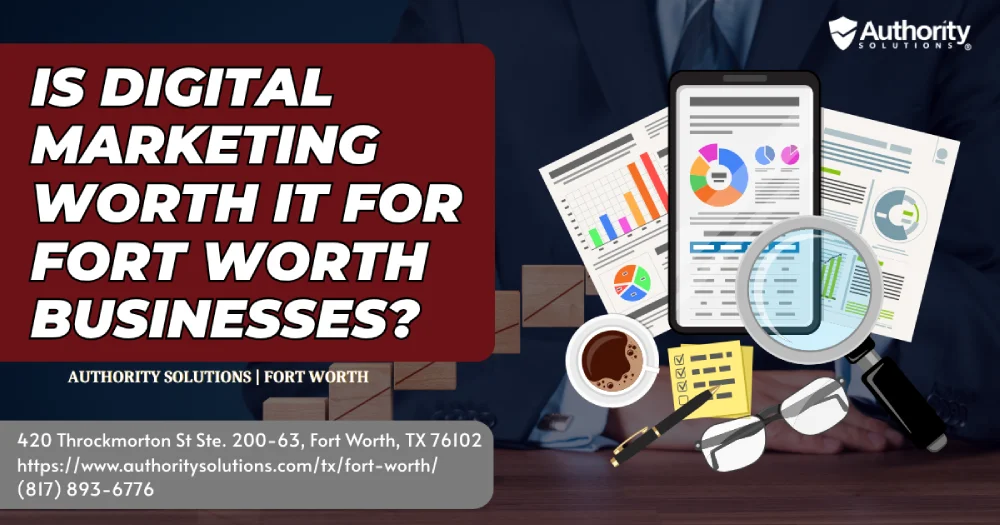How Do I Manage My Digital Reputation?
In a world where first impressions often happen online, your digital reputation can significantly influence how others perceive your business. Whether it's a potential client searching your company name or a customer reading reviews, your online presence can either build trust or create hesitation. Every review, social media mention, or search result contributes to the perception of your brand. Ignoring these digital signals can lead to missed opportunities and long-term consequences for growth and credibility.
But how do you manage your digital reputation in a landscape that’s constantly changing? The answer lies in being proactive. From real-time monitoring to reputation-building content, managing your online image means controlling the narrative before someone else does. You’ll also gain insight into the tools and strategies available and why partnering with experts can give you a competitive edge.
#HowDoIManageMyDigitalReputation
Key Takeaways
- Monitor your online reputation using real-time tools and analytics.
- Respond promptly and professionally to online reviews and feedback.
- Consistent content creation supports a positive brand image and trust.
- Measure the impact of your efforts using key metrics and sentiment analysis.
- A strong online reputation increases brand awareness and customer loyalty.
Online Reputation Management and Why It Influences Success
Your online reputation is the collective perception that people form about your brand based on digital interactions and content. This includes everything from reviews and social media engagement to how your business appears in search engine results. Online reputation management (ORM) is the ongoing process of monitoring, influencing, and improving this perception to align with your brand’s goals.
Businesses that invest in ORM are better positioned to build trust with their audience. Positive online experiences lead to higher conversion rates, better customer retention, and improved search rankings. On the other hand, neglecting ORM can result in negative reviews going unchecked, inaccurate information circulating, and reduced customer confidence.
The importance of managing your reputation goes beyond public perception—it directly affects revenue, brand authority, and long-term growth. A well-maintained digital reputation also contributes to better SEO performance, as search engines prioritize trustworthy, high-quality content.
By understanding how ORM works and its impact on your business, you can make informed decisions to safeguard your brand and drive measurable outcomes. Reputation management is not only about defense but also about positioning your business for ongoing success.
Key Elements That Shape Your Digital Reputation
Your reputation is shaped by a mix of digital factors that influence how your audience perceives your brand. These elements work together to form a public image that can attract or repel potential clients. Understanding what shapes this perception is the first step to managing it effectively.
Each factor reflects how your brand interacts with customers, appears in search engines, and is discussed across platforms. These interactions form the foundation for building trust, credibility, and visibility online.
Online Reviews and Ratings
Reviews are often the first touchpoint between a business and a potential customer. High ratings on trusted platforms signal reliability, while negative reviews—especially when unaddressed—can deter potential clients. Consistently collecting and responding to feedback helps create a balanced and trustworthy image. Over time, this contributes to both improved customer experience and stronger reputation metrics.
Social Media Activity
Social media platforms provide real-time interaction between brands and audiences. Active engagement, timely responses, and relevant content help maintain a positive image. Conversely, inactivity or mishandling of comments can negatively affect brand perception. Consistency and professionalism across all social platforms reinforce your brand's message and tone.
Search Engine Results
Your search presence significantly influences your reputation. What appears in branded searches—such as articles, press mentions, or third-party reviews—can shape first impressions. Keeping your content optimized through on page SEO ensures accurate and favorable information appears prominently. Monitoring and improving search visibility is key to managing long-term brand perception.
Website Content and Transparency
Your website acts as the digital face of your business. Clear, informative, and updated content reflects professionalism and transparency. Elements like detailed service pages, team bios, and client testimonials enhance trust. Integrating strong web design supports ease of navigation and reinforces credibility.
Third-party Mentions and Influencer Content
Content created by external sources—such as influencers, industry blogs, or news outlets—can add authority to your brand. Positive mentions enhance your reach and perceived value. Keeping track of these mentions allows you to amplify favorable content and address any inaccuracies.
Understanding these key elements empowers you to actively shape and maintain a reputation that aligns with your business goals. Managing these touchpoints allows you to maintain consistency across platforms and build stronger customer relationships.
Smart Ways to Take Control of Your Online Reputation
Effectively managing your digital reputation involves taking proactive steps to guide public perception. Rather than reacting to issues, businesses benefit from establishing systems that support ongoing reputation maintenance. These strategies help you maintain control and respond effectively to changing circumstances.
The following methods provide actionable steps to safeguard your brand image, increase customer engagement, and maintain a consistent presence across all digital channels.
Monitor Online Mentions Regularly
Set up tools that alert you to mentions of your brand across the web. Real-time tracking allows you to respond quickly to both positive and negative feedback. Monitoring helps you understand public sentiment and identify potential issues early. Consistent observation is the foundation for a responsive reputation strategy.
Respond Professionally to Reviews
Timely, thoughtful responses to reviews show that you value customer feedback. Address concerns with solutions, and thank users for positive comments. Even negative reviews can be an opportunity to show professionalism and dedication. Publicly handling feedback helps build trust with future customers.
Publish Authoritative Content
Regularly publish content that highlights your expertise and services. Blog posts, FAQs, and guides reinforce your authority in the industry. High-quality content improves your visibility and supports your SEO efforts. Strong content also allows you to control the narrative around your brand.
Encourage Satisfied Customers to Share Feedback
Reach out to happy clients with a simple request for a review. Use email, follow-up surveys, or in-person reminders to prompt feedback. Positive reviews strengthen your public image and offset the impact of occasional negative comments. Consistent outreach ensures a steady flow of up-to-date feedback.
Secure and Optimize Your Online Profiles
Claim and complete profiles on major directories and review platforms. Use consistent branding, accurate information, and quality visuals to support your image. Optimized profiles improve search rankings and credibility. Active profiles also give customers more ways to connect with your business.
Maintain Brand Consistency Across Channels
Your brand's voice, visuals, and messaging should align across your website, social media, and other platforms. Consistency supports recognition and trust. Disjointed messaging can confuse customers and harm credibility. A unified approach reinforces your brand’s identity and professionalism.
Applying these strategies consistently allows you to manage reputation proactively rather than defensively. Having a system in place prepares your business for long-term growth and visibility.
Tools and Systems to Monitor and Manage Reputation
Technology plays a critical role in managing your reputation efficiently. Using the right systems allows you to track brand sentiment, respond to reviews, and analyze performance metrics in one place. These tools also help you identify trends and take action before issues grow.
Automated platforms can provide real-time alerts, consolidate customer feedback, and monitor search engine results for branded queries. When integrated with your broader marketing strategy, these tools support data-driven decisions that improve reputation outcomes. The ability to measure impact consistently helps you refine your approach over time.
Here are commonly used tools and systems that support reputation management:
- Review monitoring and response platforms
- Social listening tools for brand mentions
- Sentiment analysis dashboards
- Search result monitoring software
- CRM systems integrated with customer feedback modules
- Reporting dashboards for reputation KPIs
With the right systems in place, businesses can maintain a consistent, accurate, and positive digital presence. However, selecting and managing these tools effectively can be time-consuming. This is where the expertise of a digital marketing agency becomes valuable, streamlining the process while ensuring measurable results.
How a Digital Marketing Agency Can Help with Reputation Management
Managing reputation requires not just tools, but the expertise to interpret data and apply insights strategically. Professional agencies bring specialized knowledge, established workflows, and advanced systems to support your business goals. Their involvement simplifies the process and strengthens your reputation efforts.
They provide value by handling both the technical and strategic elements of reputation management, allowing your team to focus on core operations while maintaining a strong digital presence.
Access to Advanced Monitoring Tools
Agencies use industry-grade software that goes beyond basic tracking. These systems provide deep insights into brand sentiment, review trends, and competitor benchmarks. This level of detail allows for faster, more accurate decision-making.
Strategic Response Management
Reputation professionals develop tailored response strategies for customer reviews and social feedback. Their approach maintains brand tone while addressing concerns effectively. This prevents miscommunication and reinforces public trust.
Content Development for Authority Building
Creating content that highlights your expertise is a key part of improving reputation. Agencies plan and publish materials that align with your branding and support search visibility. This positions your business as a trusted leader in your industry.
SEO-Driven Optimization
Agencies optimize your content and platforms for better search results. This includes applying proven SEO services to improve your visibility and control how your brand appears online. Better rankings lead to increased credibility and engagement.
Reporting and Analytics
Detailed reporting helps track the impact of reputation strategies over time. Agencies present clear metrics that reflect sentiment shifts, engagement levels, and ROI. This data supports ongoing improvements and long-term success.
Crisis Management Support
When unexpected issues arise, agencies provide fast, strategic crisis support. Their experience allows them to manage reputational risks quickly and minimize long-term effects. Preparedness ensures stability and control during critical moments.
Working with an agency removes the guesswork from reputation management. It’s a partnership that brings experience, structure, and results—especially when reputation plays a key role in customer trust and growth.
Why Partner with Authority Solutions® to Strengthen Your Digital Reputation
Authority Solutions® offers a comprehensive approach to digital reputation management tailored for growth-focused businesses. Our process is built on proven frameworks, real-time tracking, and strategic optimization. We work with you to maintain control over your public image and drive measurable outcomes through data-driven actions.
Our team provides full-service monitoring across platforms, using advanced tools to track reviews, mentions, and search engine results. We analyze this data to uncover opportunities for improvement and support your reputation goals with tailored strategies. From optimizing search visibility to managing reviews, we cover every detail.
In addition to monitoring, Authority Solutions® creates and implements content strategies that highlight your brand's strengths. This includes publishing informative content, refining your web design for better engagement, and applying on page SEO techniques to boost search rankings. Each tactic is designed to enhance your brand's credibility and reach.
Whether you're looking to improve customer trust, stand out in search, or protect your reputation long-term, our team is ready to support your goals. Authority Solutions® provides the systems, expertise, and support to help you take control of your digital presence and turn reputation into a powerful asset.
Conclusion
Your digital reputation is one of your most valuable assets in a connected world. Managing and measuring it effectively allows you to build trust, attract new customers, and stay ahead of competitors. By using strategic tools, monitoring platforms, and consistent engagement, you can take control of how your brand is perceived online.
Authority Solutions® is here to support you every step of the way. With a proven track record, tailored services, and a deep understanding of reputation dynamics, we help businesses grow with confidence. Contact us today to explore how our digital marketing agency can help you manage, measure, and strengthen your online reputation for lasting success.
Frequently Asked Questions
What’s the best way to manage your digital reputation effectively?
Managing your digital reputation involves a mix of monitoring, engagement, and optimization. Stay alert to what’s being said about your brand through review platforms, social media, and search results. Respond promptly to feedback—especially negative reviews—with professionalism and transparency. Creating consistent, value-driven content also helps establish authority and trust. For businesses short on time or expertise, working with a digital marketing agency can ensure your online reputation is actively nurtured and protected.
How can I monitor my online reputation?
To monitor your online reputation, use online reputation management tools that track mentions across review sites, social media accounts, and search engines. These tools like monitoring dashboards and analytics tools provide real-time insights into what people are saying about your brand. This approach helps you respond promptly and maintain a strong online reputation.
How can I manage my digital reputation?
You can manage your digital reputation by developing an ongoing reputation management strategy focused on engagement, content creation, and review management. Prioritize monitoring feedback from various social channels to stay informed about your brand’s online reputation. Consistent efforts help improve customer trust and increase traffic to your website.
What KPI is used to measure reputation?
Common key metrics for measuring brand reputation include review ratings, sentiment analysis, and brand mentions over time. These indicators help measure the impact and measure the effectiveness of your online reputation management efforts. Tracking positive online reviews and engagement trends is also helpful to measure the success of your strategy.
How do you measure the online reputation?
To measure the online reputation, track your online visibility, brand mentions, and sentiment trends using reputation management software. Analyzing this data helps you assess how people say online about your product or service. Using the right online reputation management tools is helpful to measure the effectiveness of your efforts.
What can damage your digital reputation?
Negative online reviews, inaccurate content, and poor engagement on social media accounts can damage your brand's online reputation. Failing to respond to customer concerns or ignoring conversations about your brand online can further erode trust. Consistent handling online feedback is essential for managing online perception.
How do I create a positive online reputation?
To build a positive reputation, focus on delivering value, engaging your customer base, and maintaining a professional presence across digital platforms. Publishing quality content and encouraging positive online reviews strengthen your brand online and attract attention from your target audience. Implementing effective online reputation management ensures ongoing success.
How can I fix my reputation online?
Fixing your reputation online involves addressing negative feedback, improving your online image, and using reputation management tools to monitor progress. Consistent engagement and strategic content creation help boost your digital presence. A focused online reputation management campaign helps repair and rebuild a positive brand image.
How do you measure your reputation?
To measure your reputation, evaluate key metrics like customer sentiment, online visibility, and engagement on digital platforms. Tools that provide analytics tools and tracking capabilities help you measure the success of your reputation management efforts. Consistent analysis helps identify pain points and improve your online reputation.
What is a good digital reputation?
A good reputation reflects positive sentiment, high customer engagement, and trust across various social and review platforms. It is marked by consistent brand awareness, positive feedback, and a loyal customer base. Investing in reputation management helps maintain and grow this favorable perception across various channels.









